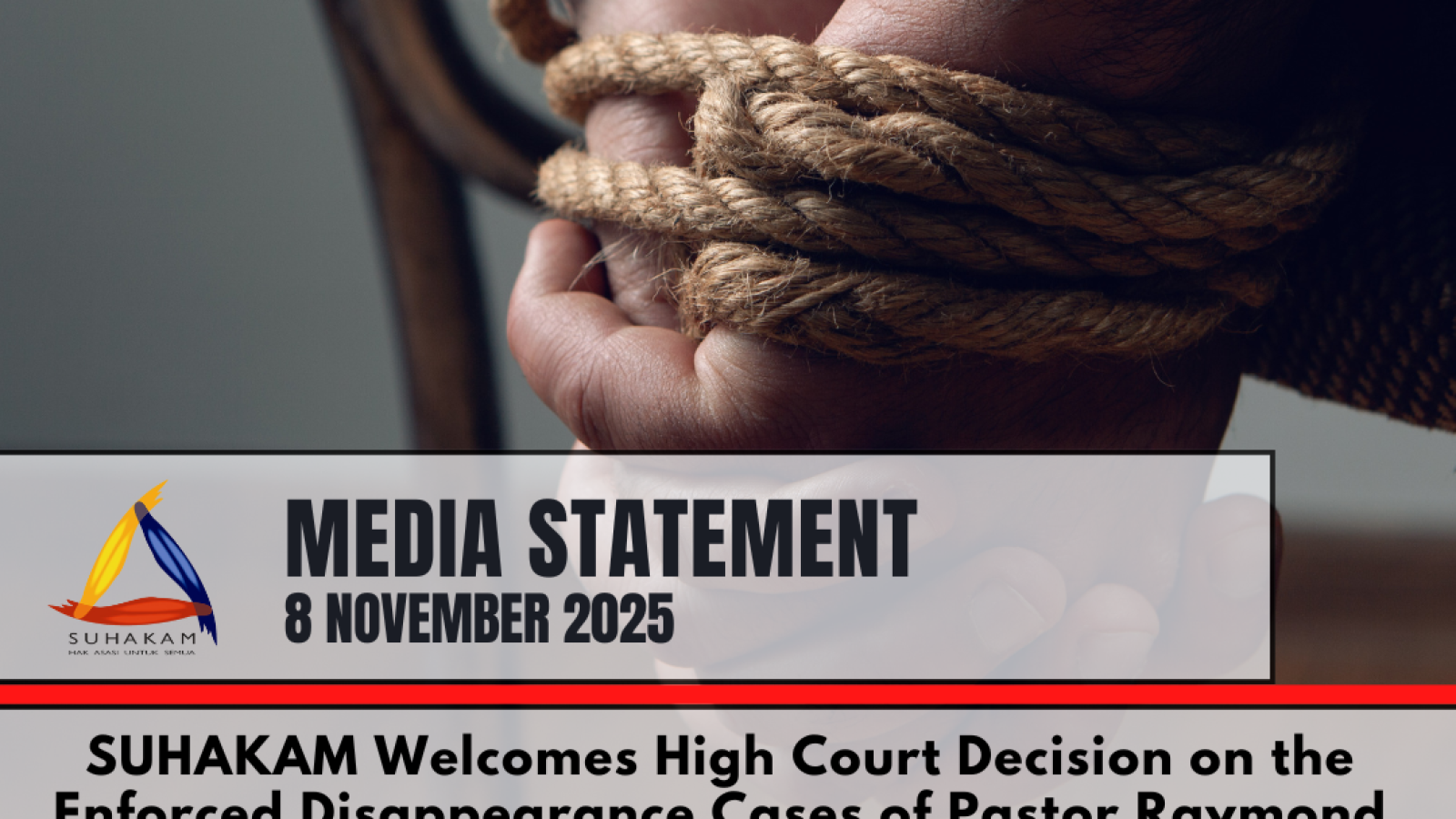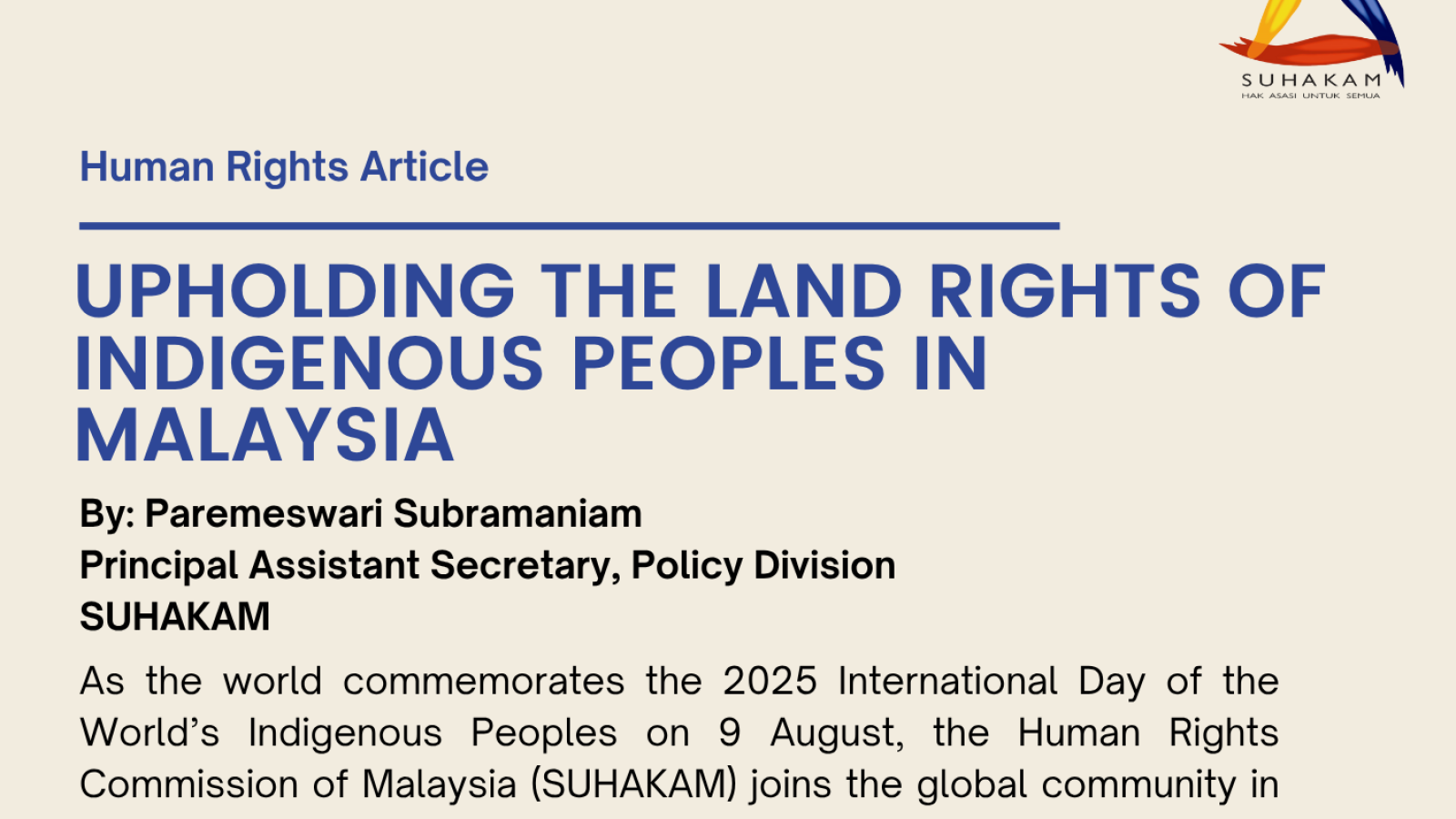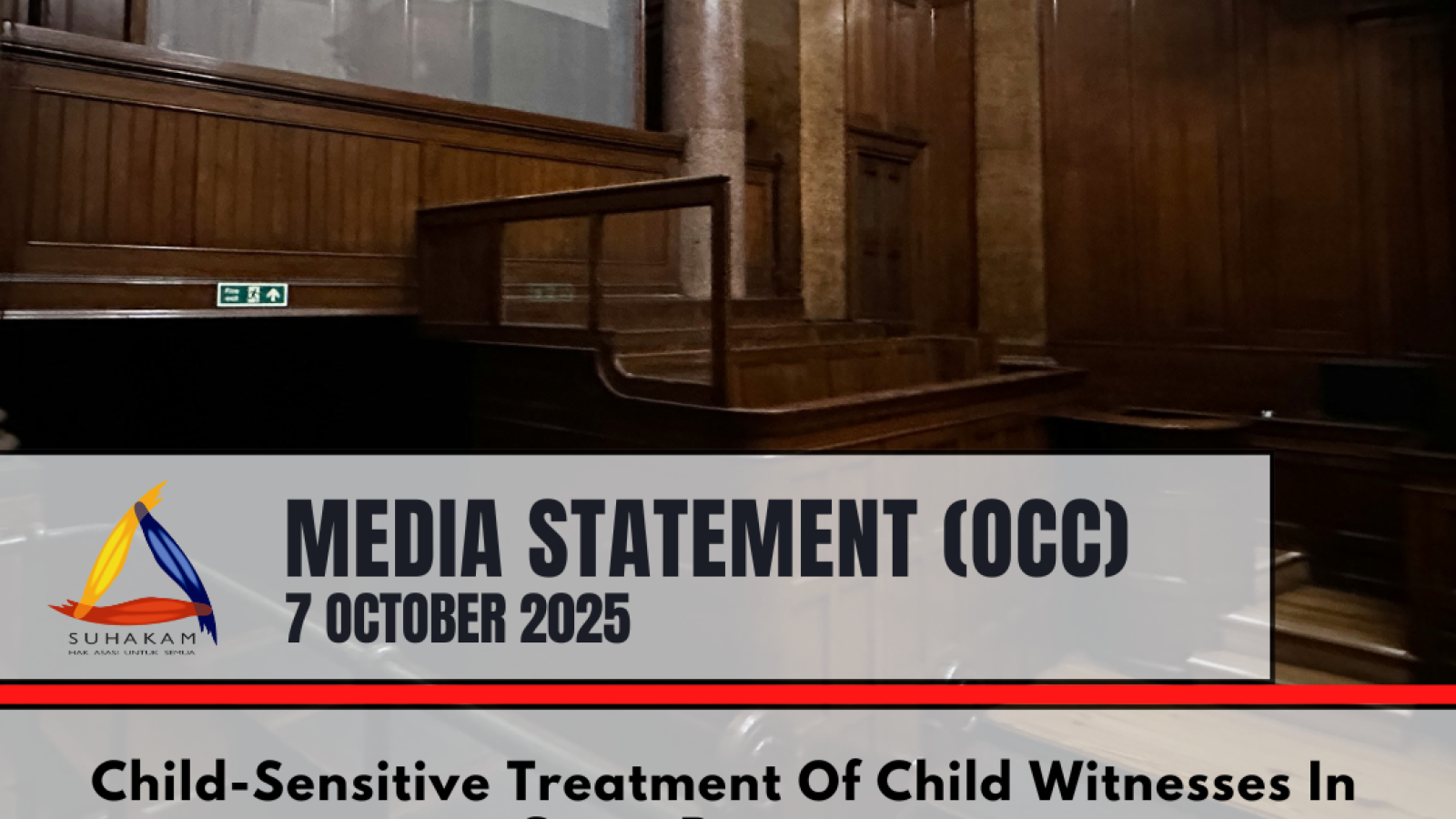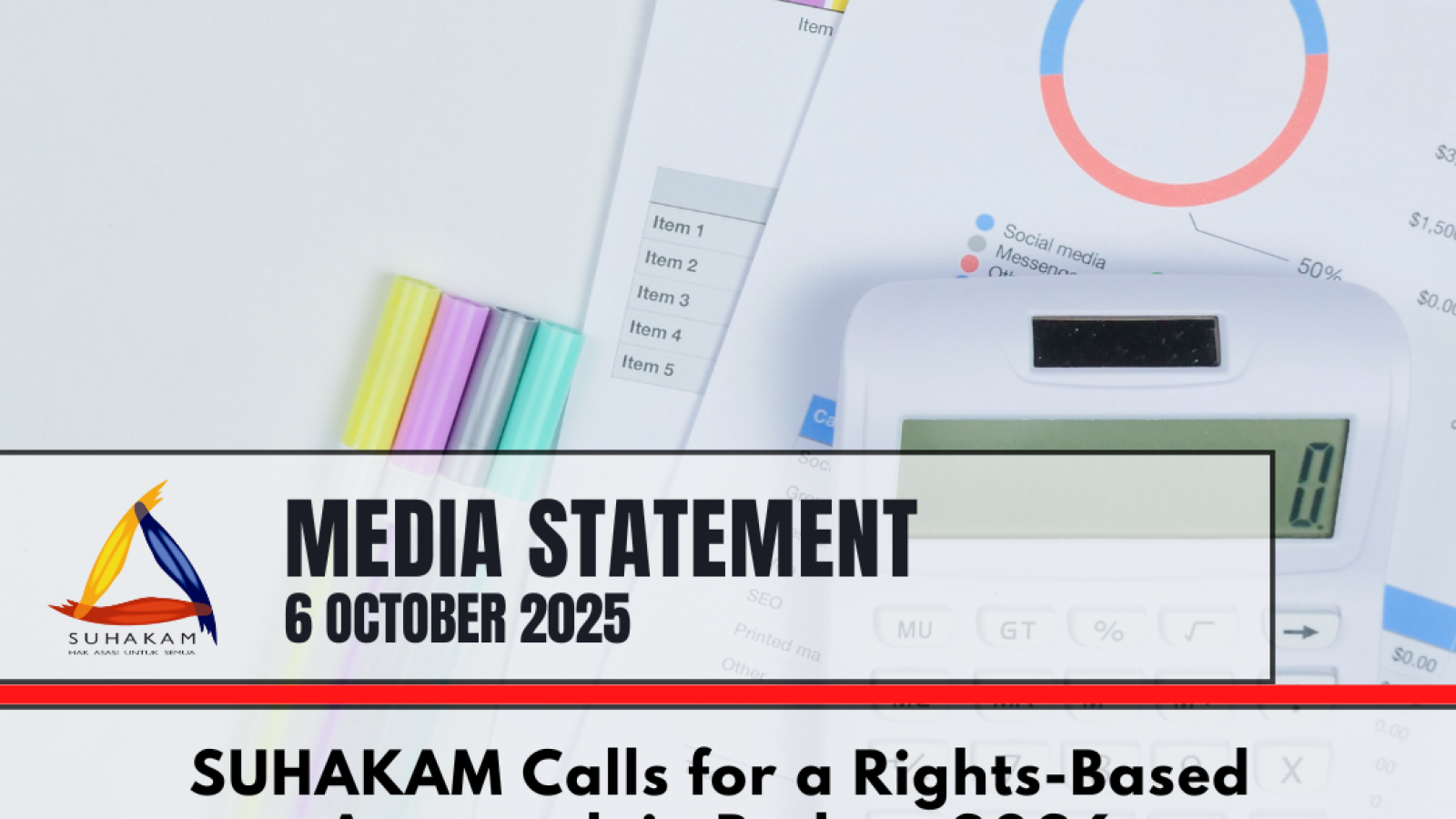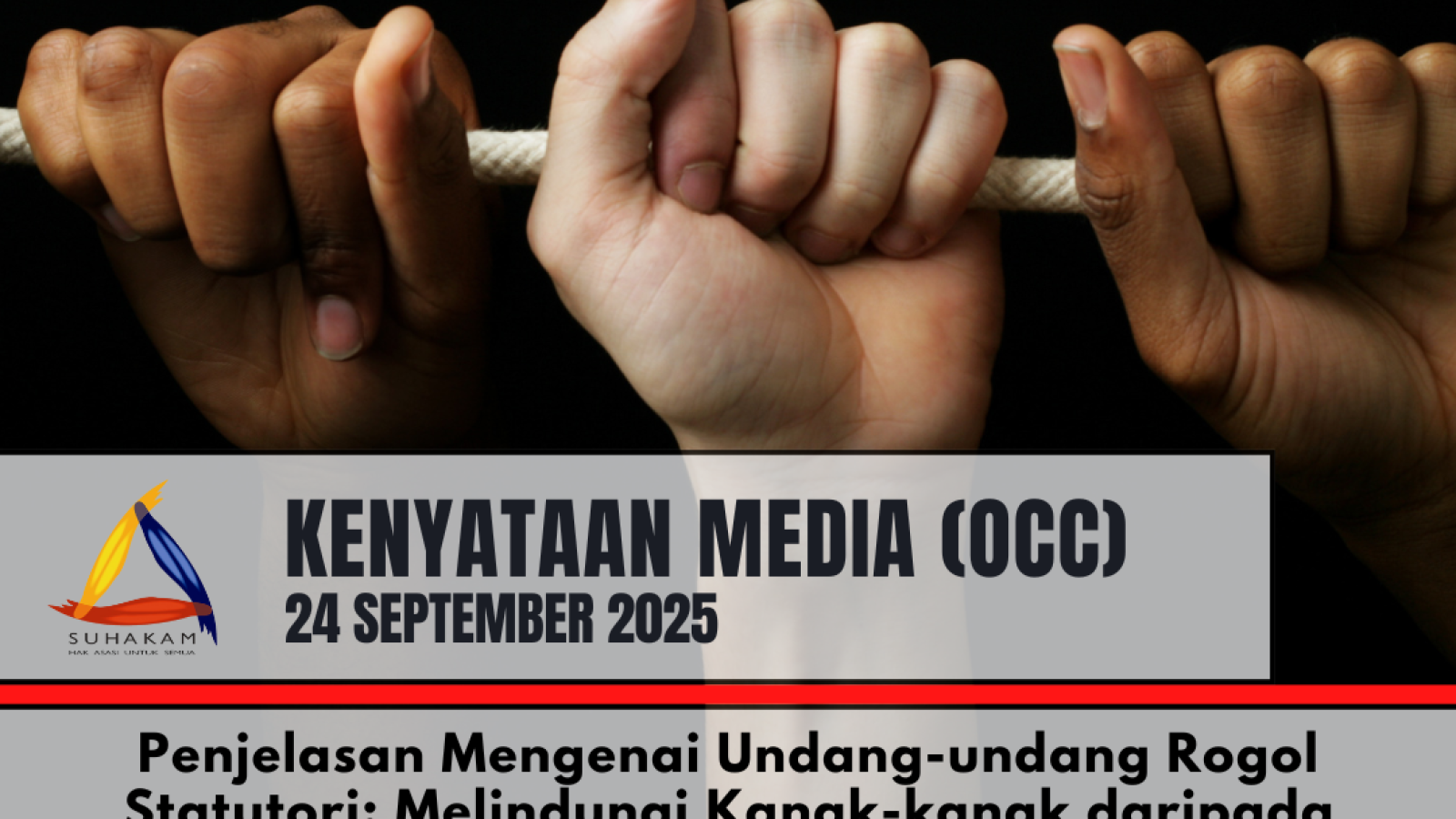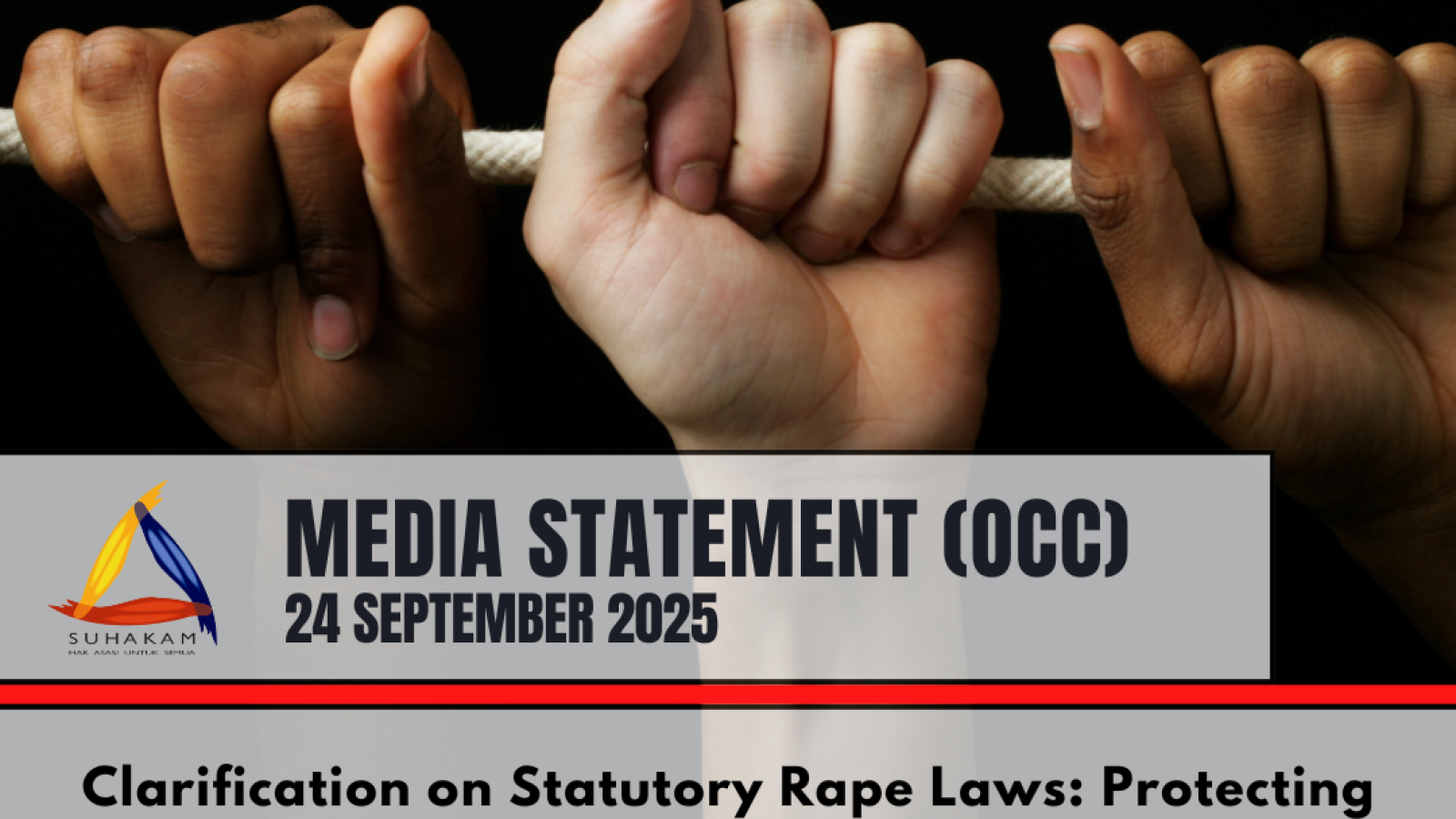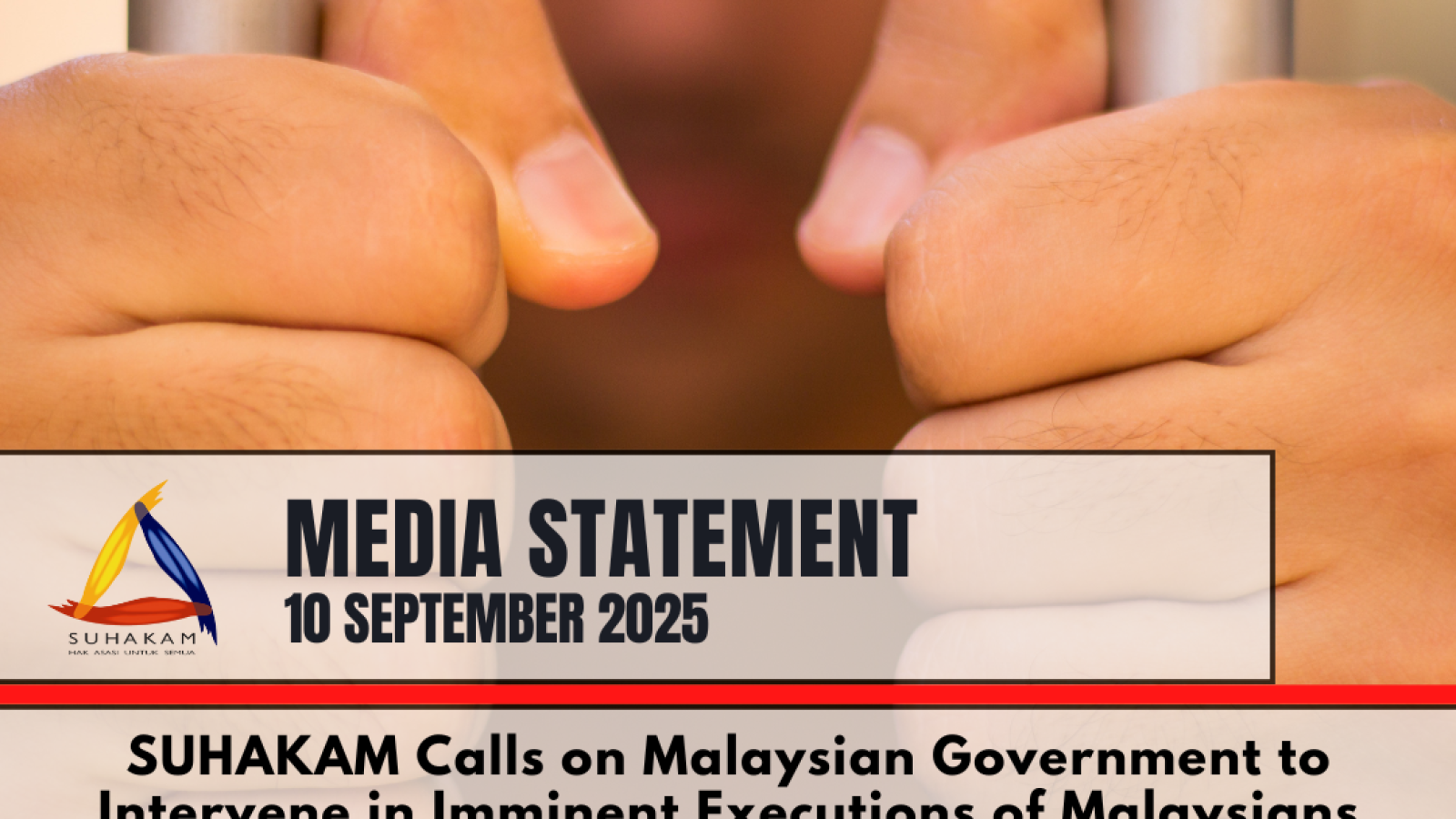KUALA LUMPUR (8 NOVEMBER 2025) - Suruhanjaya Hak Asasi Manusia Malaysia (SUHAKAM) menyambut baik keputusan Mahkamah Tinggi Kuala Lumpur yang memutuskan bahawa Kerajaan dan pihak polis bertanggungjawab dalam kes kehilangan paksa Pastor Raymond Koh dan Amri Che Mat. Keputusan yang dibacakan oleh Yang Arif Dato’ Su Tiang Joo, Hakim Mahkamah Tinggi Kuala Lumpur ini adalah tanda aras penting dalam mengiktiraf tanggungjawab negara terhadap pelanggaran hak asasi manusia yang serius, sekali gus menegaskan prinsip keadilan, akauntabiliti dan kedaulatan undang-undang.
SUHAKAM memuji keputusan Mahkamah dalam kes Pastor Koh yang mengarahkan Kerajaan untuk membayar pampasan sebanyak RM10,000 sehari bermula 13 Februari 2017 sehingga beliau ditemui, selain daripada ganti rugi am dan ganti rugi teruk. Dalam kes Amri Che Mat, Mahkamah turut memutuskan bahawa Kerajaan bertanggungjawab dan mengarahkan bayaran pampasan dan membuka semula siasatan. Keputusan ini adalah selaras dengan dapatan Siasatan Awam SUHAKAM pada tahun 2019 yang menyatakan bahawa kedua-dua individu tersebut adalah mangsa kehilangan paksa.
SUHAKAM berpandangan bahawa arahan Mahkamah supaya siasatan dibuka semula, pegawai yang terlibat dipindahkan daripada tugas penyiasatan, serta laporan berkala diserahkan kepada Jabatan Peguam Negara, merupakan langkah yang positif dan penting. SUHAKAM menegaskan bahawa tindakan pemulihan yang berkesan memerlukan siasatan yang menyeluruh, bebas, telus dan segera. Usaha ini bukan sahaja bagi memastikan akauntabiliti, tetapi untuk mencegah kejadian yang sama daripada berulang kembali.
Walaupun nilai pampasan tidak dapat menggantikan kehilangan yang dialami oleh keluarga Pastor Koh dan Amri Che Mat, keputusan Mahkamah ini mengiktiraf penderitaan yang ditanggung dan membawa mesej yang jelas bahawa kehilangan paksa tidak boleh dibiarkan tanpa tindakan. SUHAKAM juga menggesa tindakan reformasi, termasuk penubuhan mekanisme pencegahan kebangsaan yang khusus bagi menangani isu kehilangan paksa seperti yang telah disyorkan sebelum ini.
Di samping menyambut baik keputusan Mahkamah Tinggi, SUHAKAM turut menegaskan bahawa kes kehilangan Joshua Hilmy dan Ruth Sitepu yang dilaporkan kali terakhir dilihat pada 30 November 2016 tidak harus dilupakan. Kes ini berlaku dalam tempoh yang hampir sama dengan kehilangan paksa Pastor Raymond Koh dan Amri Che Mat, dan turut menjadi subjek Siasatan Awam SUHAKAM yang turut mendedahkan kegagalan serius pihak berkuasa untuk bertindak dengan segera, teliti dan profesional. SUHAKAM juga ingin mengingatkan kembali hasil dapatan Siasatan Awam pada tahun 2022 yang diketuai oleh Dato’ Seri Hishamudin Yunus bahawa kedua-dua individu tersebut telah diculik oleh orang yang tidak dikenali dan kegagalan siasatan polis yang serius telah menunjukkan penglibatan pasif pihak berkuasa. Walaupun SUHAKAM telah mengesyorkan agar pihak polis mempertingkatkan usaha siasatan, Suruhanjaya masih belum menerima sebarang maklum balas atau perkembangan yang substantif.
Kes tragis Joshua Hilmy dan Ruth Sitepu kekal sebagai peringatan yang serius tentang keperluan berterusan untuk akauntabiliti dan reformasi institusi. Walaupun keluarga mereka tidak membawa kes ini ke Mahkamah, keadilan dan kebenaran bagi mereka tetap penting. SUHAKAM menyeru pihak berkuasa untuk mengambil langkah segera dan konkrit bagi menggiatkan semula siasatan terhadap kehilangan mereka serta memaklumkan perkembangan kepada Suruhanjaya dan keluarga mangsa.
SUHAKAM kekal komited memantau pelaksanaan Keputusan Mahkamah Tinggi dengan bekerjasama dengan pihak berkuasa, menyokong keluarga mangsa dan memperjuangkan reformasi yang menyeluruh bagi memastikan perlindungan terhadap hak asasi manusia di masa hadapan. SUHAKAM yakin bahawa Kerajaan akan mengambil peluang ini untuk memperkukuh komitmen Malaysia terhadap hak asasi manusia dengan melaksanakan arahan Mahkamah secara berkesan, memastikan akauntabiliti penuh dan memperkukuh langkah-langkah pencegahan terhadap penyalahgunaan kuasa di masa hadapan. SUHAKAM turut menyeru semua pihak berkepentingan agar bertindak segera dan tegas dalam memperjuangkan kebenaran, keadilan dan reformasi institusi.
-TAMAT-–
Suruhanjaya Hak Asasi Manusia Malaysia (SUHAKAM)
Tarikh: 8 November 2025

